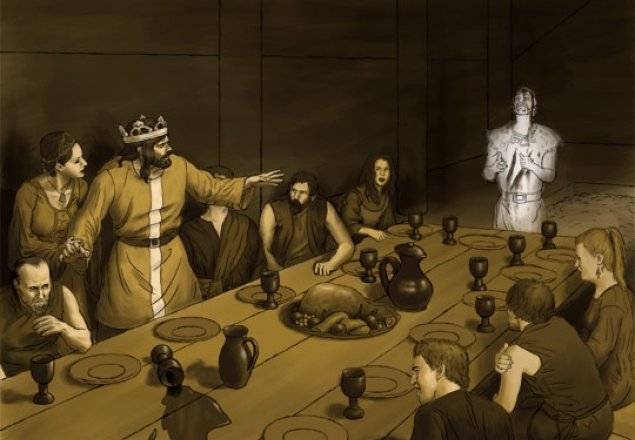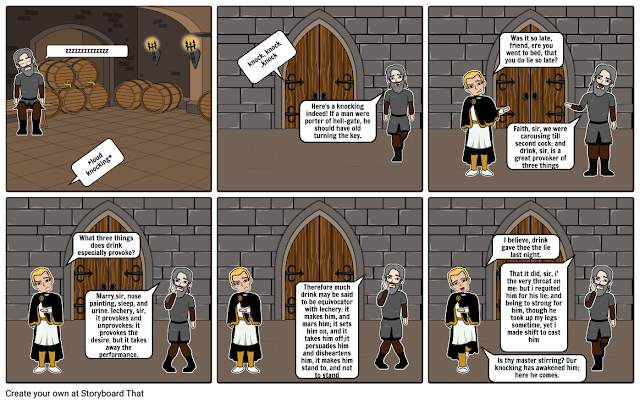Dramatic Significance of the Banquet Scene in Macbeth

Macbeth kills Banquo out of fear and initially hardly agonises over the murder of either Banquo or his son Fleance the way he does over the killing of Duncan. He believes by killing them he annihilates the possibility of Banquo's seeds mastering the kingdom. However in the banquet Macbeth's fear does turn guilt as sees or imagines Banquo's ghost. This is of immense significance since this is first time that his inner conflict is made public, that too in front of the other thanes. This is the time from when the tides turn against Macbeth and things start to fall apart. Macbeth becomes increasingly paranoid about everything which is reflected both internally and externally. Noticing Macduff absence he begins to attribute it to a probable conspiracy to hatch his own downfall. The Banquet Scene (scene iv, Act III) opens at the royal hall of Scotland with the banquet ready celebrating Macbeth’s coronation. The audience find the couple now at the height of double-deal...




